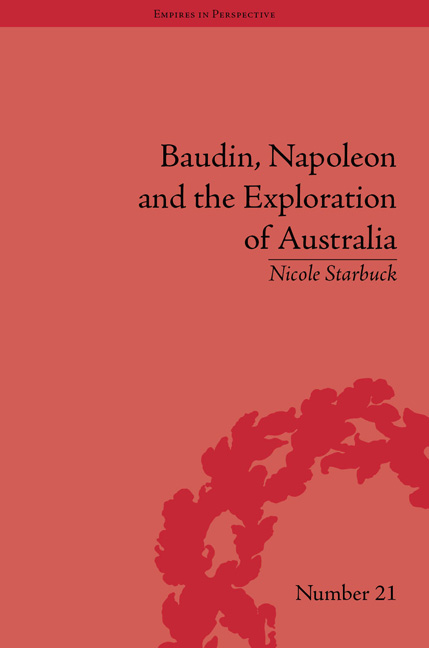Book contents
- Frontmatter
- CONTENTS
- Acknowledgements
- List of Figures
- Introduction: Voyaging out of the Enlightenment
- 1 Between Revolution and Empire: France and its Australian Voyage in 1800
- 2 ‘I Should Wish … to Establish a Few Tents on Shore’: The Port Jackson Stay
- 3 Disciplining Passions: French Naval-Voyagers at Anchor
- 4 The French and the British: A Diplomatic Relationship
- 5 Liberty, Equality and ‘Civilization’: Observations of Colonial Aborigines
- 6 Swans, Frogs and Rum: Natural History in an ‘Unnatural’ Space
- 7 Baudin's ‘New Expedition’
- 8 Epilogue: Voyaging into the Nineteenth Century
- Notes
- Works Cited
- Index
5 - Liberty, Equality and ‘Civilization’: Observations of Colonial Aborigines
- Frontmatter
- CONTENTS
- Acknowledgements
- List of Figures
- Introduction: Voyaging out of the Enlightenment
- 1 Between Revolution and Empire: France and its Australian Voyage in 1800
- 2 ‘I Should Wish … to Establish a Few Tents on Shore’: The Port Jackson Stay
- 3 Disciplining Passions: French Naval-Voyagers at Anchor
- 4 The French and the British: A Diplomatic Relationship
- 5 Liberty, Equality and ‘Civilization’: Observations of Colonial Aborigines
- 6 Swans, Frogs and Rum: Natural History in an ‘Unnatural’ Space
- 7 Baudin's ‘New Expedition’
- 8 Epilogue: Voyaging into the Nineteenth Century
- Notes
- Works Cited
- Index
Summary
In the letter to his ‘friend Mr King’, Baudin in fact wrote less about British claims to the possession of Tasmania than about the colonization of Indigenous Australians. On this point, he was again concerned about territory, though not in relation to the rights of discovery but to the laws of nature and the corresponding duties of government. ‘I have never been able to conceive’, revealed the commander,
that there was any justice or even loyalty on the part of Europeans in seizing, in the name of the government, a land they have seen for the first time when it is inhabited by men who did not always deserve the titles of ‘savages’ and ‘cannibals’ that have been lavished on them, whereas, they were still only nature's children and no more uncivilised than your Scottish Highlanders of today or our peasants of Lower Brittany, etc., who, if they do not eat their fellow men, are no less harmful to them for all that.
Baudin opined, in fact, that
it would be infinitely more glorious for your nation as for my own to train for society the inhabitants of the countries over which they each have rights, rather than undertaking to educate those who live far away by first seizing the land that belongs to them and to which they belong by birth.
Based on a firm assumption about the universality of the human race, it was both the rights and the progress of humanity – across the divides of class and region as well as colour – that concerned Baudin. These were the concerns that moved him to criticize the British colonial project in New South Wales. If the above ‘principle had generally been adopted’ by King and his fellow British authorities, argued Baudin, they ‘would not have had to form a colony of men branded by the law and abandoned to themselves.
- Type
- Chapter
- Information
- Baudin, Napoleon and the Exploration of Australia , pp. 81 - 100Publisher: Pickering & ChattoFirst published in: 2014

